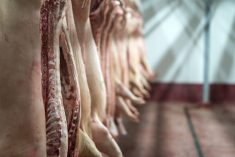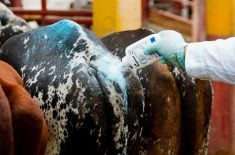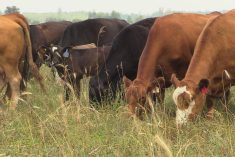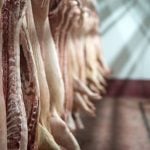(Resource News International) — The Canadian Pork Council’s first-ever
breeding swine cull program will fall short of its target to
reduce the Canadian swine breeding herd by 10 per cent,
equivalent to roughly 150,000 sows.
However, a spokesperson
for the council said it’s not disappointed about having
missed that amount.
Under the Cull Breeding Swine Program, Canadian hog
producers were eligible to receive funds for animals culled
from Nov. 1, 2007 to Nov. 30, 2008. The $50 million
program is funded by Agriculture and Agri-Food Canada
Read Also
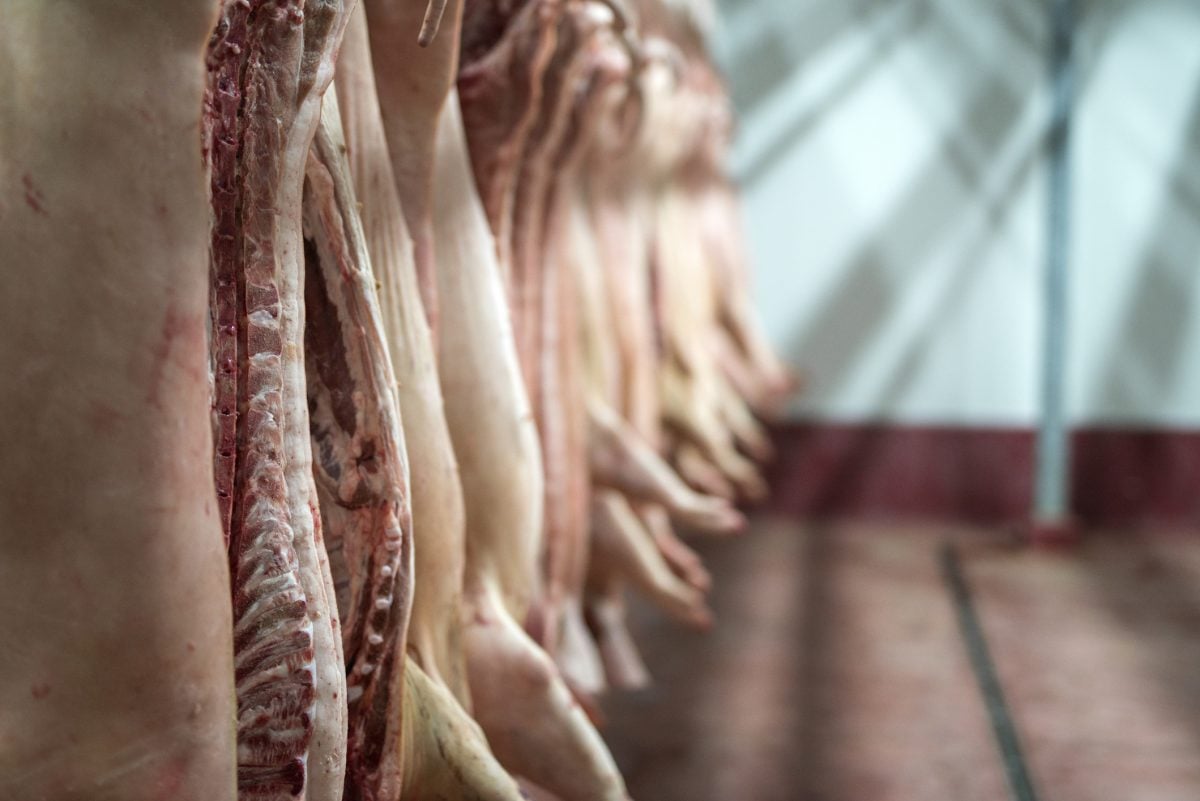
U.S. livestock: Cattle slip back, hogs gain
Chicago cattle futures slipped back on Friday after Thursday’s pause. Hog futures crept upward. Most-active December live cattle futures closed…
As of Sept. 1, the deadline for applications, 121,000 sows had been culled or were eligible to be culled under the program, short of the intended target of
150,000.
“We’re not disappointed that we didn’t reach that
number,” said Gary Stordy, communications and government
relations co-ordinator for the CPC.
The program was meant as a tool for producers who, for
financial reasons, needed to remove a portion of their
production. It allowed them to get paid for their culled sows
and helped them restructure their operations, according to
Stordy. Culling a certain amount of animals was not the focus
of the program.
Number to cover
The 150,000 figure had been put out by the
program funding would cover, he said.
Improving hog prices by reducing Canadian supply was also
not the focus of the program, he said.
That may have been one of the results, but the focus was
on offering assistance to producers who were losing
significant amount of money due to the depression in hog
prices and higher feed and fuel costs, he explained.
Now, however, with funding still available, the CPC has
asked the Canadian government for permission to accept
applications for sows culled before Nov. 1, 2007.
“Some of the feedback that we were receiving from
producers applying to the program was that they had actually
started the cull prior to that,” Stordy said.
“In some areas of Canada the industry had its
difficulties so they started their cull early. This is an
attempt to incorporate them into the program and frankly,
there was some money that was unallocated,” he said.
The CPC isn’t sure when it will hear back from the
government about its request for retroactive funding, Stordy said.
When or if it receives approval, a notice would be sent
out to all producers who had already applied as well as
all other eligible individuals, he said.


